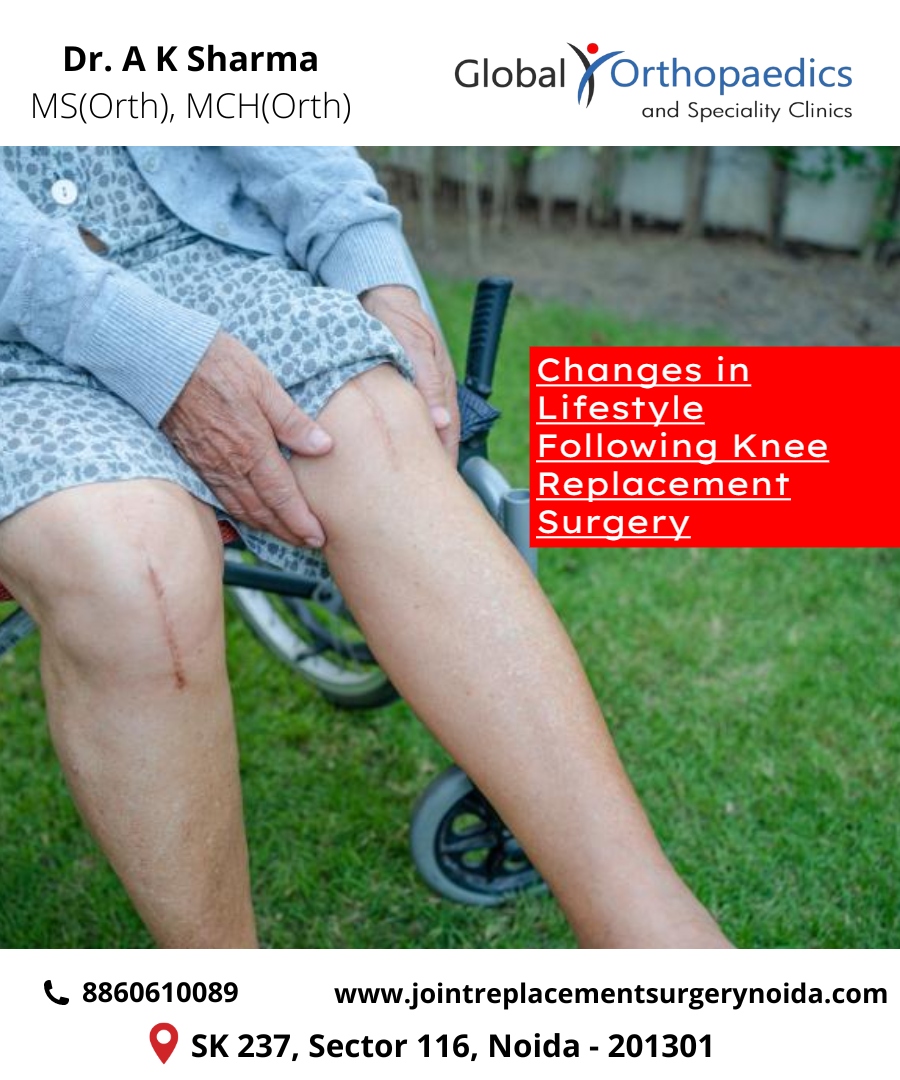+918860610089

This is your website preview.
Currently it only shows your basic business info. Start adding relevant business details such as description, images and products or services to gain your customers attention by using Boost 360 android app / iOS App / web portal.
Changes in Lifestyle Following Knee Replacement Su...

Changes in Lifestyle Following Knee Replacement Surgery A crippling knee injury or disease can have a significant influence on your life, regardless of whether you are an athlete, an active person, or a regular person. Thankfully, knee replacement surgery can help you restore function and mobility and change your life. It might help you start the healing process so you can resume living an active lifestyle. A knee replacement is an extremely successful procedure. The majority of patients who undergo knee replacement surgery report considerable pain relief and better knee joint function. However, you should expect to have some knee discomfort, edema, and stiffness right after surgery. You can progressively increase your degree of activity while the joint recovers. Following a successful knee replacement procedure, what changes should you anticipate in your life? What’s Different: Living With Your New Knee Controlling your expectations is a major issue when living with a new knee. It's critical to acknowledge that your new knee is not a flawless joint. It won't have the same sensation as your former knee. After surgery, you can also occasionally feel pain and stiffness and need to retrain your knee's movement and function. This is typical, particularly in the initial months following a recovery. With time, most patients recovering from knee replacement surgery are able to resume all of their pre-surgical activities. Living with a new knee has many more benefits than drawbacks. Most patients get pain alleviation and better knee joint function following surgery. Overall, this may result in a higher quality of life. Maintaining Exercise and Sleep It's critical to strike a balance between activity and rest in the short term. While you should allow your knee some time to heal, you should still continue your exercise regimen to avoid blood clots and muscle atrophy. When they advise you on how much sleep and exercise you should have, pay attention to them. For the initial phases of recuperation, walking, swimming, and other physical activities are beneficial. Physical therapists can assist you in finding the ideal ratio of exercise to rest in order to strengthen and shield your knee from harm. Maintaining a Healthy Weight with a Good Diet It's critical for patients recovering from knee surgery to follow a healthy diet. Consuming wholesome foods and well-balanced meals can aid in the healing process and decrease inflammation in your body. A healthy weight must be maintained as well. Carrying too much weight strains your knees and increases the risk of reinjury or knee disease. Controlling Your Soreness and Unease After knee surgery, you could feel some pain and discomfort. This is common, and you can deal with it in a few different ways. In addition to painkillers, your doctor might also recommend alternative pain-management techniques. This may consist of: - Putting some ice on your knee - Raising your leg - Applying a bandage for compression - Taking warm showers or baths - Using a hot water bottle or heating pad Are you in need of knee replacement surgery in Noida? You can get assistance from Dr. A K Sharma. He is committed to giving you the finest treatment possible for your joint ailment. To ensure your complete recovery, we also provide ancillary services including physical therapy and rehabilitation. Call us at 8860610089 or use our online appointment request form to schedule a consultation with Dr. Ashok Kumar Sharma.

